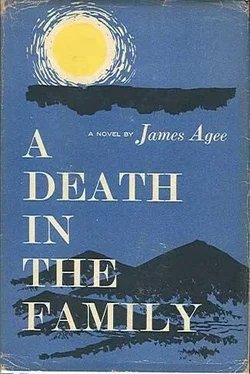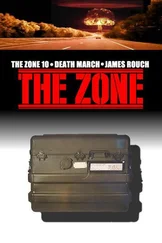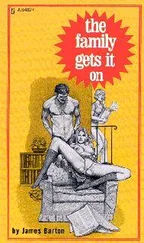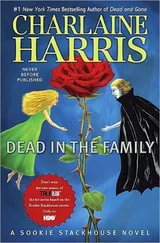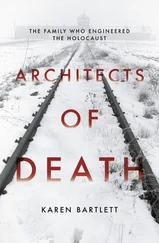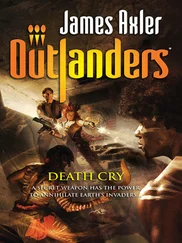He shook his head and said, in a friendly voice which made Rufus feel ashamed, "How would your daddy like it, you out here telling strangers how he's dead?"
Rufus opened the door, taking care not to make a sound, and stepped in and silently closed it, and hurried into the sitting room. Through the curtains he watched the man. He still stood there, lighting a cigarette, but now he started walking again. He looked back once and Rufus felt, with a quailing of shame and fear, he sees me; but the man immediately looked away again and Rufus watched him until he was out of sight.
How would your daddy like it?
He thought of the way they teased him and did things to him, and how mad his father got when he just came home. He thought how different it would be today if he only didn't have to stay home from school.
He let himself out again and stole back between the houses to the alley, and walked along the alley, listening to the cinders cracking under each step, until he came near the sidewalk. He was not in front of his own home now, or even on Highland Avenue; he was coming into the side street down from his home, and he felt that here nobody would identify him with his home and send him back to it. What he could see from the mouth of the alley was much less familiar to him, and he took the last few steps which brought him out onto the sidewalk with deliberation and shyness. He was doing something he had been told not to do.
He looked up the street and he could see the corner he knew so well, where he always met the others so unhappily, and, farther away, the corner around which his father always disappeared on the way to work, and first appeared on his way home from work. He felt it would be good luck that he would not be meeting them at that corner. Slowly, uneasily, he turned his head, and looked down the side street in the other direction; and there they were: three together, and two along the far side of the street, and one alone, farther off, and another alone, farther off, and, without importance to him, some girls here and there, as well. He knew the faces of all of these boys well, though he was not sure of any of their names. The moment he saw them all he was sure they saw him, and sure that they knew. He stood still and waited for them, looking from one to another of them, into their eyes, and step by step at their several distances, each of them at all times looking into his eyes and knowing, they came silently nearer. Waiting, in silence, during those many seconds before the first of them came really near him, he felt that it was so long to wait, and be watched so closely and silently, and to watch back, that he wanted to go back into the alley and not be seen by them or by anybody else, and yet at the same time he knew that they were all approaching him with the realization that something had happened to him that had not happened to any other boy in town, and that now at last they were bound to think well of him; and the nearer they came but were yet at a distance, the more the gray, sober air was charged with the great energy and with a sense of glory and of danger, and the deeper and more exciting the silence became, and the more tall, proud, shy and exposed he felt; so that as they came still nearer he once again felt his face break into a wide smile, with which he had nothing to do, and, feeling that there was something deeply wrong in such a smile, tried his best to quieten his face and told them, shyly and proudly, "My daddy's dead."
Of the first three who came up, two merely looked at him and the third said, "Huh! Betcha he ain't"; and Rufus, astounded that they did not know and that they should disbelieve him, said, "Why he is so!"
"Where's your satchel at?" said the boy who had spoken. "You're just making up a lie so you can lay out of school."
"I am not laying out," Rufus replied. "I was going to school and my Aunt Hannah told me I didn't have to go to school today or tomorrow or not till-not for a few days. She said I mustn't. So I am not laying out. I'm just staying out."
And another of the boys said, "That's right. If his daddy is dead he don't have to go back to school till after the funerl."
While Rufus had been speaking two other boys had crossed over to join them and now one of them said, "He don't have to. He can lay out cause his daddy got killed," and Rufus looked at the boy gratefully and the boy looked back at him, it seemed to Rufus, with deference.
But the first boy who had spoken said, resentfully, "How do you know?"
And the second boy, while his companion nodded, said, "Cause my daddy seen it in the paper. Can't your daddy read the paper?"
The paper, Rufus thought; it's even in the paper! And he looked wisely at the first boy. And the first boy, interested enough to ignore the remark against his father, said, "Well how did he get killed, then?" and Rufus, realizing with respect that it was even more creditable to get killed than just to die, took a deep breath and said, "Why, he was…"; but the boy whose father had seen it in the paper was already talking, so he listened, instead, feeling as if all this were being spoken for him, and on his behalf, and in his praise, and feeling it all the more as he looked from one silent boy to the next and saw that their eyes were constantly on him. And Rufus listened, too, with as much interest as they did, while the boy said with relish, "In his ole Tin Lizzie, that's how. He was driving along in his ole Tin Lizzie and it hit a rock and throwed him out in the ditch and run up a eight-foot bank and then fell back and turned over and over and landed right on top of him whomph and mashed every bone in his body, that's all. And somebody come and found him and he was dead already time they got there, that's how."
"He was instantly killed," Rufus began, and expected to go ahead and correct some of the details of the account, but nobody seemed to hear him, for two other boys had come up and just as he began to speak one of them said, "Your daddy got his name in the paper didn he, and you too," and he saw that now all the boys looked at him with new respect.
"He's dead," he told them. "He got killed."
"That's what my daddy says," one of them said, and the other said, "What you get for driving a auto when you're drunk, that's what my dad says," and the two of them looked gravely at the other boys, nodding, and at Rufus.
"What's drunk?" Rufus asked.
"What's drunk?" one of the boys mocked incredulously: "Drunk is fulla good ole whiskey"; and he began to stagger about in circles with his knees weak and his head lolling. "At's what drunk is."
"Then he wasn't," Rufus said.
"How do you know?"
"He wasn't drunk because that wasn't how he died. The wheel hit a rock and the other wheel, the one you steer with, just hit him on the chin, but it hit him so hard it killed him. He was instantly killed."
"What's instantly killed?" one of them asked.
"What do you care?" another said.
"Right off like that," an older boy explained, snapping his fingers. Another boy joined the group. Thinking of what instantly meant, and how his father's name was in the paper and his own too, and how he had got killed, not just died, he was not listening to them very clearly for a few moments, and then, all of a sudden, he began to realize that he was the center of everything and that they all knew it and that they waited to hear him tell the true account of it.
"I don't know nothing about no chin," the boy whose father saw it in the paper was saying. "Way I heard it he was a-drivin along in his ole Tin Lizzie and he hit a rock and ole Tin Lizzie run off the road and showed him out and run up a eight-foot bank and turned over and over and fell back down on top of him whomp."
"How do you know?" an older boy was saying. "You wasn't there. Anybody here knows it's him." And he pointed at Rufus and Rufus was startled from his revery.
Читать дальше
